Completely revised, updated, and redesigned, this classic dictionary by Dr. Michel Millodot continues to be an essential resource for all optometrists in training and in practice, as well as residents in ophthalmology. It is also a crucial source of information for anyone involved in vision science and in the optical industry. It now includes many new entries on pathology, pharmacology, investigative techniques, visual perception, optics and contact lenses. This edition presents all of the features that have made it so successful in the past, such as succinct, understandable definitions, comprehensive tables and illustrations, clinical advice, and extensive cross-references.
Dictionary of Optometry and Vision Science, 8th Edition
KSh 13,300.00
Completely revised, updated, and redesigned, this classic dictionary by Dr. Michel Millodot continues to be an essential resource for all optometrists in training and in practice, as well as residents in ophthalmology. It is also a crucial source of information for anyone involved in vision science and in the optical industry. It now includes many new entries on pathology, pharmacology, investigative techniques, visual perception, optics and contact lenses. This edition presents all of the features that have made it so successful in the past, such as succinct, understandable definitions, comprehensive tables and illustrations, clinical advice, and extensive cross-references.
Related products
-
Davidson’s Principles and Practice of Medicine, 24th Edition
KSh 13,650.00Well over two million medical students, doctors and other health professionals around the globe have owned a copy of Davidson’s Principles and Practice of Medicine since it was first published over 70 years ago. Now in its 24th Edition, this thoroughly updated textbook describes the pathophysiology and clinical features of the most frequently encountered conditions in the major specialties of adult medicine, and explains how to recognise, investigate, diagnose and manage them. Taking its origins from Sir Stanley Davidson’s much-admired lecture notes, Davidson’s has endured because it keeps pace with how modern medicine is taught and provides a wealth of trusted information in an easy-to-read, concise and beautifully illustrated format.
Key features:
-
- Part 1 ‘Fundamentals of Medicine’ – provides an account of the principles of genetics, immunology, infectious diseases, population health, oncology and pain management, along with a discussion of the core principles behind clinical decision-making and good prescribing.
-
- Part 2 ‘Emergency and Critical Care Medicine’ – covers medical emergencies in poisoning, envenomation and medicine in austere environments, as well as common presentations in acute medicine and the recognition and management of the critically ill.
-
- Part 3 ‘Clinical Medicine’– covers the major medical specialties, each thoroughly revised and brought fully up to date. A new section on COVID-19 has been added and the impact of this infection is described throughout the book.
-
- Clinical Examination overviews – extended and updated to summarise the main elements for each system.
-
- Presenting Problems sections – provide a clear pathway for the assessment of and approach to the most common complaints in each specialty.
-
- Practice Point summaries – detail the practical skills that medical students and junior doctors must acquire.
-
- Emergency boxes – emphasise the core knowledge needed to manage acutely ill patients.
-
- In Old Age, In Pregnancy and In Adolescence boxes – highlight differences in the practice of medicine in these patient groups, and illustrate the interfaces between medical, obstetric and paediatric services.
-
- The text is extensively illustrated – with over 1000 diagrams, clinical photographs, and radiology and pathology images.
- The global perspective is enhanced by an International Advisory Board of experts from 11 countries and by leading authors from around the world.
The complete, downloadable eBook version is included with your (print copy) purchase – for easy access on your portable device, anytime, anywhere! Now enhanced with:
- NEW interactive self-assessment material – over 150 Questions and Answers test your understanding of chapter key points and aid efficient exam preparation
Davidson’s will serve readers everywhere as a core text that integrates medical science with clinical medicine, conveying key knowledge and practical advice in a highly accessible and readable format.
REVIEWS
Beautifully constructed with superb clarity of style – Davidson’s continues to provide for students, doctors and other health professionals a sound basis for the practice of medicine.
Royal Society of Medicine and Society of Authors Medical Book Awards
This book comes through where others fail: an excellent textbook, easy to read and superb value.
British Medical Journal
-
Contents
1 Clinical decision-making
2 Clinical therapeutics and good prescribing
3 Clinical genetics
4 Clinical immunology
5 Population health and epidemiology
6 Principles of infectious disease
7 Oncology
8 Pain and palliative care
9 Acute medicine and critical illness
10 Poisoning
11 Envenomation
12 Medicine in austere environments
13 Infectious disease
14 HIV infection and AIDS
15 Sexually transmitted infections
16 Cardiology
17 Respiratory medicine
18 Nephrology and urology
19 Clinical biochemistry and metabolic medicine
20 Endocrinology
21 Diabetes mellitus
22 Nutritional factors in disease
23 Gastroenterology
24 Hepatology
25 Haematology and transfusion medicine
26 Rheumatology and bone disease
27 Dermatology
28 Neurology
29 Stroke medicine
30 Medical ophthalmology
31 Medical psychiatry
32 Maternal medicine
33 Adolescent and transition medicine
34 Ageing and disease
35 Laboratory reference ranges
-
-
A Complete Hospital Manual of Instruments and Procedures Paperback
KSh 8,400.00Infection Control, Sterilization and Care of Surgical Instruments Electrical Instruments―Laser, Cryoprobes, Ultrasonic Equipments The OR Complex, Its Management and Operation Table Anesthesia Equipment and Anesthetics Ligature and Suture Materials Operating Microscopes Endoscopy General Surgical Instruments General Surgical Sets and Procedures Gynecological and Obstetric Sets and Procedures Urologic Sets and Procedures Endocrine Surgery Procedures Orthopedic Instruments Sets and Procedures Ophthalmic Instruments and Procedures Dental Instruments and Procedures Ear, Nose & Throat Instruments and Procedures Neurosurgical Instruments and Procedures Plastic Surgery Instruments and Procedures Thoracic Instruments and Procedures Cardiovascular Instruments and Procedures Pediatric Surgery Procedures and Instruments Imaging Procedures and Equipment Plaster of Paris (POP) Technique New Emerging Techniques Appendices I to VI
-
An Introduction to Medical Statistics 4th Revised ed. Edition
KSh 6,860.00Now in its Third Edition, An Introduction to Medical Statistics contin ues to be and invaluable textbook for medical students, doctors, medic al researchers, nurses, members of professionals allied to medicine as well as those concerned with medical data. The material covered inclu des all the statistical work that would be required for a course in me dicine and for the examinations of most of the Royal Colleges. It incl udes the design of clinical trials and epidemiological studies, data c ollection, summarizing and presenting data, probability, standard erro r, confidence intervals and significance tests, techniques of data ana lusis including multifactorial methods and the choice of statistical m ethod, problems of medical measurement and diagnosis, vital statistics, and calculation of sample size.
-
The Brain That Changes Itself
KSh 1,095.00An astonishing new science called neuroplasticity is overthrowing the centuries-old notion that the human brain is immutable. Psychiatrist and psychoanalyst Norman Doidge, travelled around the US to meet both the brilliant scientists championing neuroplasticity and the people whose lives they’ve transformed – people whose mental limitations or brain damage were seen as unalterable. We see a woman born with half a brain that rewired itself to work as a whole, blind people who learn to see, learning disorders cured, IQs raised, aging brains rejuvenated, stroke patients learning to speak, children with cerebral palsy learning to move with more grace, depression and anxiety disorders successfully treated, and lifelong character traits changed. Using these marvellous stories to probe mysteries of the body, emotion, love, sex, culture, and education, Dr. Doidge has written an immensely moving, inspiring book that will permanently alter the way we look at our brains, human nature, and human potential.
-
The Behavioral Health Specialist in Primary Care: Skills for Integrated Practice
KSh 12,600.00Patients with chronic conditions often need psychosocial support and brief counseling to help them make the lifestyle and behavioral changes required to prevent disease complications. This innovative text, with contributions from respected clinicians and researchers in all arenas of behavioral health, provides comprehensive training for all health professionalsóincluding those in medicine, nursing, social work, mental health, and clinical and health psychologyówho desire targeted evidence-based training in behavioral health skills. Rich case examples drawn from typical patient presentations demonstrate the relationship between physical and psychological health and the complexity of behavioral change in chronic illness.
This text is a timely, relevant, and practical resource for all members of the primary care team. It prepares team members to work in the model of patient-centered integrated care in accordance with the recommendations of the Affordable Care Act (ACA) and the National Committee for Quality Assurance (NCQA) medical home standards for identifying patient needs and providing coordinated and comprehensive patient care. The book focuses on knowledge and skills needed for working with the most common chronic conditions such as diabetes, obesity, chronic pain, cardiovascular conditions, sleep disorders, geriatric conditions, cancer-related conditions, and substance abuse. It includes chapters on epidemiological trends in chronic illness and systems medicine. Theories of health behavior and behavioral change and evidence-based interventions provide a foundation for skill development, followed by detailed coverage of the requirements for behavioral management of specific chronic conditions. Sample referrals and consultation notes provide concrete examples of how the behavioral health specialist might respond to a referral.
KEY FEATURES:
- Provides comprehensive graduate-level training for the role of Behavioral Health Specialist
- Describes the health promotion and counseling skills needed to function as part of an integrated health team
- Focuses on proficiencies needed for working with common chronic conditions
- Addresses the psychosocial components of primary care disorders
- Includes case examples demonstrating the relationship between physical and psychological health and the complexity of behavioral change in chronic illness
-
District Laboratory Practice in Tropical Countries
KSh 21,420.00Changes in the organization of health services in developing countries have led to district levels assuming more responsibility for the planning, delivery and quality of community health care. This fully up-dated new edition has been produced to help those working in the district laboratory, and those responsible for the organization and management of community laboratory services and the training of district laboratory personnel. Replacing the previous publication Medical Laboratory Manual for Tropical Countries, this book provides an up-to-date practical bench manual, taking a modern approach to the provision of a quality medical laboratory service.
-
The Global Family Planning Revolution: Three Decades of Population Policies and Programs (Moving Out of Poverty) Paperback
KSh 7,000.00The striking upsurge in population growth rates in developing countries at the close of World War II gained force during the next decade. From the 1950s to the 1970s, scholars and advocacy groups publicized the trend and drew troubling conclusions about its economic and ecological implications. Private educational and philanthropic organizations, government, and international organizations joined in the struggle to reduce fertility. Three decades later this movement has seen changes beyond anyone’s most optimistic dreams, and global demographic stabilization is expected in this century.
‘The Global Family Planning Revolution’ preserves the remarkable record of this success. Its editors and authors offer more than a historical record. They disccuss important lessons for current and future initiatives of the international community. Some programs succeeded while others initially failed, and the analyses provide valuable guidance for emerging health-related policy objectives and responses to global challenges.
-
Ross and Wilson Anatomy and Physiology in Health and Illness International Edition, 14th Edition
KSh 8,000.00Now in its fourteenth edition, this best-selling textbook has been honed over many years to provide a clear, straightforward introduction to the human body for students of nursing, allied health or biomedical and paramedical science.
The book covers the core essentials of anatomy and physiology, including basic pathology and pathophysiology of important diseases and disorders. This new edition presents additional illustrations to enhance understanding of key concepts, including pathophysiology and diagnostics. Included for the first time is an introduction to surface anatomy, while other updating reflects current scientific knowledge and developments, including coronavirus. Enhanced learning features and an extensive online resource help you grasp all the important areas.
Like millions of readers before you, you will treasure Ross & Wilson as a go-to resource that you will refer to time and again to support this critical aspect of your healthcare education.
Key Features-
- Clear and easy to read – suitable for students new to the area and anyone whose first language is not English
-
- Hundreds of stunning illustrations and images to make learning easy
-
- Helpful learning features such as Learning Outcomes boxes, colour coding and orientation icons to facilitate navigation
-
- Definitions of common prefixes, suffixes and roots, examples, glossary and an appendix of normal biological values
-
- Self-assessment activities in each chapter, including ‘spot check’ questions for each section and case studies with answers to develop understanding of key principles
- Accompanying website with animations, videos, audio-glossary and other self-assessment material
Evolve Study Resources
Online content offered with Ross & Wilson Anatomy and Physiology in Health and Illness 14th edition includes:
-
- New for this edition – a set of expert-narrated 3D videos summarizing key topics in the book, powered by Complete Anatomy: the world’s most advanced 3D anatomy platform
-
- Over 120 animations clarifying underlying principles and make learning fun
-
- More than 1700 audio glossary entries
-
- Body Spectrum © online colouring and self-test software
- Self-assessment questions to help students test their knowledge
Author InformationBy Anne Waugh, MSc CertEd SRN RNT FHEA, School of Acute and Continuing care Nursing, Napier University, Edinburgh, UK and Allison Grant, BSc PhD RGN, Department of Biological and Biomedical Sciences, Glasgow Caledonian University, Glasgow, UK -

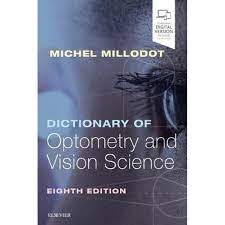
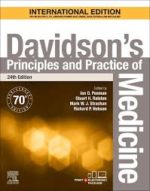
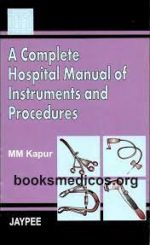
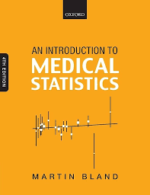
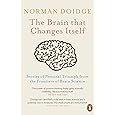
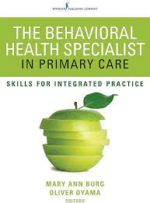



Be the first to review “Dictionary of Optometry and Vision Science, 8th Edition”